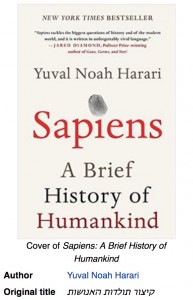Here is something from my seemingly endless preparation of The Quiet Revolution. It’s a story that I often related to audiences to illustrate the changing nature of the information that we are using today and our need to redefine literacy.
 There was a study conducted by the University of California at Berkley called “How Much Information.” They discovered that the world generated five exabytes of information in 2002.
There was a study conducted by the University of California at Berkley called “How Much Information.” They discovered that the world generated five exabytes of information in 2002.
You are probably thinking,
“If I knew what an exabyte was, I’m supposed I would be impressed.”
To clarify, if we added five exabytes of information to the Library of Congress, the largest library in the world, it would require the building of 37,000 more Libraries of Congress to hold that year’s additional information. The kicker, however, is that only one one-hundredths of one percent (00.01%) of that information ever got printed. All the rest of the new information was digital, existing as 1s and 0s and residing on the memory cells of magnetic tape, disks, optical discs and integrated circuits; and requiring digital technology and technology skills to access and use that information. If more and more of our information is digital and networked, then we can take the paper out of our future workplace.
This also begs the question, “Why are we continuing to spend so much time continuing to teach our children how to use paper when we need to be teaching them how to use light – to use digital information?”

